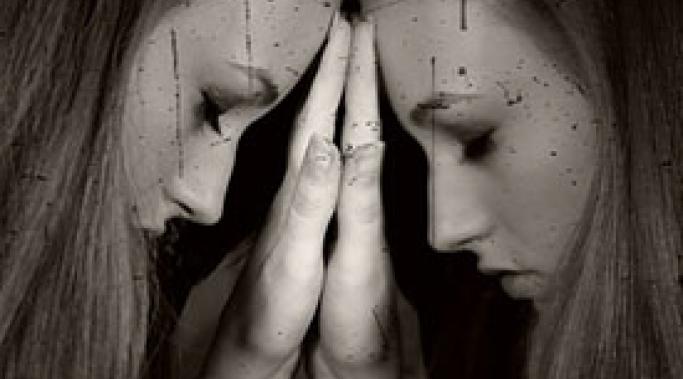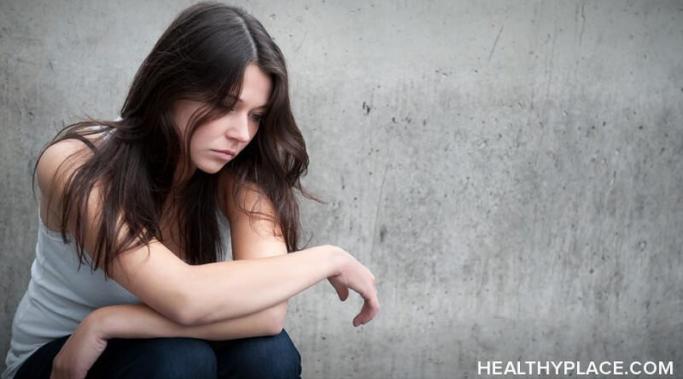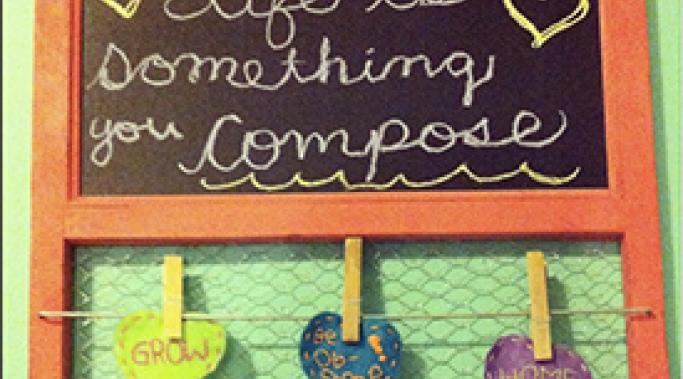The other day I saw Get On Up, the James Brown biopic. One of the underlying themes in the film is how our personal histories can help create a kind of dysfunctional aloneness, separating us from the very people and experiences we need the most to thrive emotionally. This reminded me of the experience of depression, how the disease can create a feeling of separateness and of chronic aloneness.
Coping with Depression
My depression recovery often feels like it isn't going forward at all. I feel like my emotions go all over the map, up, down, sideways, backwards, and then forwards again. Some days my depression feels better than the day before, but other days it feels worse than I did the day before. Even in the span of one day, I can go from feeling pretty okay about things to feeling like I want to throw in the towel. It's so confusing and frustrating.
This past week, I was struck by how much of a role food cravings play in the dance of my moods. When tired, stressed or feeling low, I consistently found myself reaching for sweets to get through. Cookies, cake, or pudding: it didn’t matter, so long as carbohydrates were involved. I didn’t want to keep eating in such an unhealthy way. Yet despite my best intentions, I returned again and again to the very foods I had forsworn just hours earlier. Then I would get frustrated and beat myself up for breaking my promise. After sinking to polishing off a dinner of pretzels and double chocolate chip cookies one night, I tried to sit in awareness of my chaotic, depression feelings. The question came to mind: What are you feeding?
In childhood I really believed the phrase, "If you don't have anything nice to say, don't say anything at all."
I learned to smile all the time so that people liked me. I rarely ever complained, since I knew that so many people in the world had things in their lives far worse than I could imagine. It's no wonder that my family and friends only learned about my depression symptoms and feelings when I became actively suicidal.
Most days, I’m pretty accepting of having depression. Some days, I’m not. One of those days happened recently when I heard two young women excitedly discussing their plans for the future. They looked to be about the age I was right before I was diagnosed. Back then I had concerns and worries, but big mental health diagnoses were just not on my horizon. As far as I knew at least.
I mentioned to my psychiatrist that my sister is getting married this week and my doctor reminded me that if I have mixed or depressed feelings at the wedding not to panic because this can be normal. This made me think – for those prone to depression, maybe weddings are similar to the holidays in that they can provoke the exact opposite of what you think you should be feeling. At a very “happy” event like a wedding, we can feel pressure to feel very good. And what if we don’t?
Chronic pain is part of my depression, and it's making me feel so very uncomfortable tonight. I have several health problems that stem from having depression and their symptoms are often more debilitating than depression is on its own. Some come from the stress of having depression, others are a side-effect of my antidepressants. Overcoming my pain is complex, and it often feels like this never ending cycle of chronic pain, depression and pills.
I love language. I believe the words we choose shape our minds and our world. This is why I choose to say, "I have depression" instead of saying, "I'm depressed." My depression diagnosis is a part of me, but it isn't all of me. Using positive language to describe my illness helps me manage my illness.
At times, I definitely feel like I am a walking pit of doom and gloom. I feel so depressed that I literally can't believe I'll ever feel anything good ever again. I wonder, why live when I feel like dying? No feeling ever lasts forever, though. If I wait it out, usually a friend will text me or I'll see a new recipe I want to try. The world reminds me that there is more to me than my depression.
If you’re familiar with depression, you’re familiar with black and white thinking, or thinking in absolutes such as, “I can’t do anything right.” I find that even when I am not in a depressed state, noticing black or white thinking can be one of the first signs that my mood is starting to wobble. I’ve learned that with mood, I’d rather address a slightly low mood from the get-go than wait until I have to dig myself out of a deeper depression. And the key with addressing black and white thinking is to move from black and white to gray. Black and white is limited. Gray embraces the range of possibilities.
It's very common to experience apathy and disinterest in the things you once loved when you're suffering from depression. Your depression symptoms, however, don't need to dictate how you spend your time. If you do things you enjoy (or used to enjoy) you can actually reverse some of the damage your hopeless feelings do to your everyday sense of self and well-being.









